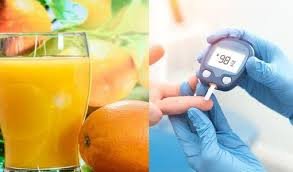In a landmark judgment that could shape the nutrition and beverage industry for years to come, the Delhi High Court’s ORS label ban has sent shockwaves through soft drink manufacturers and public health circles alike. By clamping down on the misuse of “ORS” (Oral Rehydration Salts) on the labels of sugary beverages and unapproved products, the court has drawn a clear line between life-saving medicine and misleading marketing. This verdict is more than a regulatory skirmish it is a decisive victory for parents, pediatricians, and child health advocates across India.
Let’s unpack why this ruling, and the accompanying FSSAI ORS sugary drinks ruling, is being hailed as a watershed for consumer protection and the fight against rising childhood obesity and dehydration mismanagement.
The Background: Why Was “ORS” on Soft Drink Labels a Problem?
Oral Rehydration Salts (ORS) are a precise formulation of salts and glucose prescribed by the World Health Organization (WHO) to treat dehydration caused by diarrhea, vomiting, or heat. ORS is simple, cheap and saves hundreds of thousands of young lives each year in India alone. Unlike energy or sports drinks, standard ORS solutions have a scientifically precise balance of glucose and electrolytes, with strict limits on sugar content.
However, recent years saw a worrying trend: bottled beverages often high in added sugar and lacking essential electrolytes marketing themselves with “ORS” or “rehydration” on their packaging. These drinks, stocked in shops and hawked as “healthy” alternatives to sodas, were confusing consumers and, more dangerously, parents seeking solutions for sick children. Unsuspecting buyers, misled by these labels, risked giving their children sugar-packed drinks instead of true medical-grade ORS, potentially worsening dehydration or even risking death.
The Legal Showdown: Delhi High Court’s Stand
Faced with petitions from health groups, consumer forums, and child welfare advocates, the Delhi High Court examined industry practices and regulatory inaction. The verdict: an immediate Delhi High Court ORS label ban on all non-approved drinks and products falsely bearing the “ORS” designation or similar branding.
The court didn’t mince words, sharply criticizing lax oversight and unscrupulous marketing. It emphasized that allowing such labeling “endangers public health and subverts the intent of medical science.” The Food Safety and Standards Authority of India (FSSAI), under pressure from the judiciary, was ordered to tighten enforcement and ensure swift action against violators.
FSSAI’s ORS Sugary Drinks Ruling: What Changed?
Following the High Court’s order, the FSSAI ORS sugary drinks ruling set out the following:
- Clear Definition: Only products matching the established WHO formula for oral rehydration solutions regarding ingredients, concentration, and usage can bear the “ORS” or “rehydration” label.
- Immediate Ban: All soft, energy, or sports drinks cannot use ‘ORS,’ ‘rehydration,’ or similar language unless they are tested, proven, and approved as medicinal ORS by the relevant regulatory body.
- Stricter Monitoring: State food safety authorities and the FSSAI will routinely test and audit beverage labeling, with steep penalties and product recalls for offenders.
Why Is This a Turning Point for Child Health in India?
1. Protecting Children from Deceptive Marketing
Childhood dehydration is an emergency, not a marketing opportunity. By outlawing “ORS” branding on sugary drinks, the court reduces the risk of parents accidentally worsening their children’s health, especially during seasonal outbreaks of diarrhea or heatwaves.
2. Combating the Sugar Epidemic
India’s escalating childhood obesity crisis is driven by sugary beverage consumption. Misleading “healthy” slogans have allowed sugar-rich drinks to slip into lunch boxes and hospital wards under the guise of wellness. This ruling ensures brands can no longer camouflage sugar by hiding behind medicinal marketing.
3. Trust in Medical Advice Restored
The judgment fortifies the hand of doctors and nurses, who for decades have urged families to use only certified ORS for dehydration. Now, their advice can’t be undercut by flashy bottles and celebrity endorsements pitching “medical” drinks on supermarket shelves.
4. Setting a Precedent for Honest Labeling
In a market flooded with “low-fat,” “immunity,” and “energy” claims, the High Court’s forthright defense of scientific labeling could pave the way for more rigorous standards across the food and beverage industry.
The Industry Response and What Happens Next
The beverage industry lobbied hard against the sweeping ruling, pushing for “transitional” phases and exemptions for “electrolyte drinks” and “sports rehydration products,” but the court and FSSAI have stood firm: medical labeling is for medicine, not for mass-market, unregulated products.
Moving forward:
- Expect a wave of product rebranding; major companies are already rolling out new packaging minus any “ORS” language.
- Educational campaigns are expected to clarify the difference between certified ORS and flavored soft drinks.
- FMCG and retail sectors are revising inventory to comply, pulling or relabeling non-compliant products.
Empowering Parents and Consumers: What You Should Do
If your child suffers from dehydration due to illness or heat always choose only those ORS packets with FSSAI and WHO approval, usually sold at pharmacies, clinics, and government outlets. Check the label against the FSSAI’s published guidelines, and remember: color, taste, and packaging are not indicators of efficacy.
For everyday refreshment and sports, water remains the best hydrator for children. Reserve packaged “rehydration” drinks for medical advice contexts only.
Conclusion: A Clear Step Forward for Child Health
The Delhi High Court ORS label ban and subsequent FSSAI ORS sugary drinks ruling aren’t mere legal footnotes. They represent a decisive stand on behalf of India’s most vulnerable its children and a message to the food business: honest science, not commercial spin, must rule the supermarket aisles. For pediatricians, parents, and public health advocates, the judgment is a vital, long-awaited win. Fewer children will now fall prey to hidden sugars and empty promises a victory that could echo across playgrounds, hospitals, and homes for years to come.


